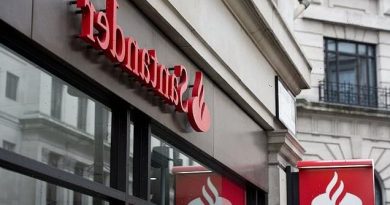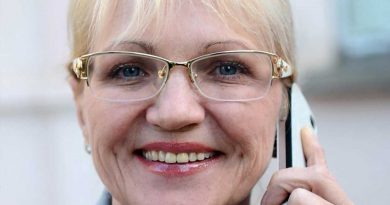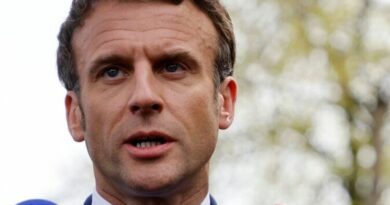Facebook taking 'very aggressive measures' to remove vaccine misinformation: Carolyn Everson
The Biden administration on Thursday launched a star-studded campaign to address COVID-19 vaccine hesitancy, signaling the threat vaccine refusal poses to the U.S. reopening as 1 in 4 Americans say they would turn down a shot if offered, according to a recent NPR/Marist poll.
In recent weeks, a host of political officials — including a dozen state attorneys general and some members of Congress — have blamed hesitancy in part on Facebook (FB), saying the company has failed to combat the spread of vaccine-related misinformation.
In a new interview, Carolyn Everson — vice president of Facebook's Global Business Group — responded to that line of criticism, saying the company is "taking very aggressive measures" to remove vaccine misinformation. The effort reflects a top priority for the company, she added.
"We have fact checkers in dozens of countries around the world that are really working around the clock to look at not just misinformation about vaccines, but misinformation more more broadly," says Everson, an executive at Facebook since 2011.
"We see it as an absolute imperative to try to get misinformation off the platform and redirect people to accurate information," she adds.
Facebook began removing false information about COVID-19 vaccines in December, and expanded the list of offending vaccine-related claims two months later, the social media giant said on its blog in February. Since that month, Facebook took down 2 million pieces of anti-vaccine content, the company told Bloomberg Businessweek on April 1.
'A major cultural pivot'
The moves mark a shift from the company's reluctance to take strong action against vaccine-related misinformation over the initial months of the pandemic. In September, Facebook CEO Mark Zuckerberg told Axios that the platform would not undertake the same concerted fight against vaccine misinformation that it had against false posts about COVID-19.
In addition to its removal of false posts, Facebook has provided accurate information about the pandemic to 2 billion people across 190 countries through the COVID-19 Information Center it launched last March, Everson said.
"That was a major cultural pivot for the company," she says. "With vaccines, we've then taken that model and said, 'Okay, how do we provide accurate information about vaccines? Where do you get them? What are the side effects?'" she says. "Why they make sense, why you should get them, [and] tools to help you."
The platform now offers state-by-state tools that help people find nearby vaccine sites, she said.
But the spread of misinformation about vaccines on the platform persists. Facebook is the primary source of vaccine misinformation in the Latinx community, in which 51% of people say they likely will not get the COVID-19 vaccine at this time, according to a poll released on Wednesday by the Latino Anti-Disinformation Lab.
Last week, when the U.S. halted the distribution of the Johnson & Johnson vaccine after six recipients developed a rare blood-clotting disorder, the most popular post on Facebook about the vaccine came from a conspiracy theorist who attributes the pandemic to a government-led effort to enhance its control, according to information from the data-tracking tool CrowdTangle reported by NPR.
Everson spoke to Yahoo Finance Editor-in-Chief Andy Serwer in an episode of “Influencers with Andy Serwer,” a weekly interview series with leaders in business, politics, and entertainment.
She joined Facebook a decade ago, leading the company's advertising division and cultivating relationships with top advertisers. Over her tenure, the company's annual advertising revenue has exploded from $3.1 billion in 2011 to $84.1 billion last year.
Prior to her tenure at Facebook, she held executive roles at tech and media companies such as Microsoft (MSFT), Viacom (VIAC), and Zagat.
Speaking to Yahoo Finance, Everson said the platform's COVID-19 Information Center emerged from a leadership meeting in January 2020 in which attendees discussed how the company could rapidly contribute to the fight against the pandemic.
"The single most important question and most provocative question I have seen in my career was asked, which is: 'What decisions do we need to make today that if we don't make, we will regret in two weeks?' she says.
"That level of urgency was pretty extraordinary," she adds. "I'd never seen that question asked in that context."
Read more:
Facebook VP: Company has ‘a lot more work to do’ on diverse leadership
Ken Burns: People are making lots of money off ‘the big lie’ of US election fraud
Dalio sees 'good probability' bitcoin gets outlawed
Netflix co-founder on creative culture: We ‘manage on the edge of chaos’
Read the latest financial and business news from Yahoo Finance
Source: Read Full Article




